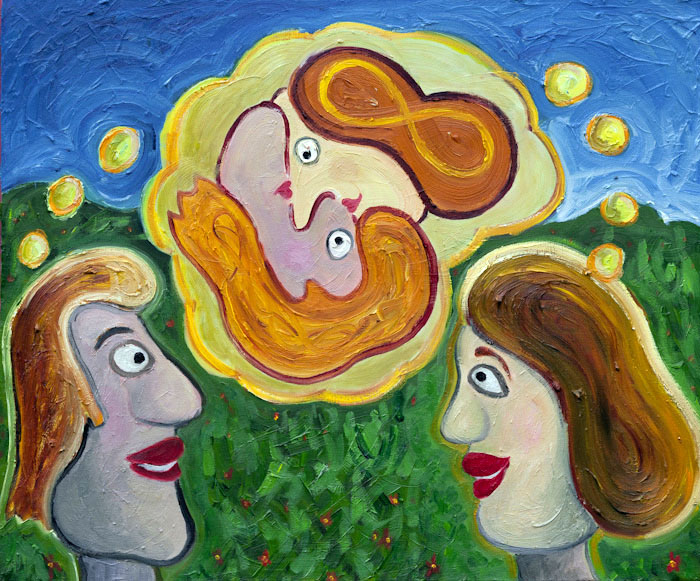
Jane and the Roadspider
by Rudy Rucker

I’d known Jane Roller my whole life—all the way back into the fog and shadows of early childhood. My parents, though not nearly as well-off as the Rollers, were in their circle of friends.
I was an only child. Dad was a society painter, turning out landscapes of country mansions and portraits of the elite who lived within. He wasn’t above painting bird dogs and thoroughbred horses as well. Mom was a wedding planner, with a sideline in floral arrangements. I attended the private St. Francis school east of Louisville amid the horse farms—as did Jane Roller. We were in the same grade.
Jane had remarkable hair—more than blonde, it was yellow with a tinge of red. She’d get flushed and shiny when she was feeling lively, which was often. She had a flexible voice—jolly, outraged, defiant, conspiratorial, amused—and she liked to talk in accents. Not that, in the earliest days, I paid much attention to her. The boys played with the boys, the girls with the girls.
Jane’s parents owned a downtown company that made feed for livestock. When I was about four years old, they switched to making food for nurbs—the wetware-programmed plants and animals that people were starting to use.
I remember my mother showing me what she called a bouquet reef. It was something she’d purchased for spare-no-expense reception. The bottom of the bouquet reef looked like a log, and pale, flexible blossoms were growing out of it—an amazing array, approximately like white roses, creamy tulips, and calla lilies.
“They’re not really flowers,” Mom told me. “They’re nurbs. More like animals than like plants. Here, you can have one.” She uprooted a lily, bringing a bit of the crumbly log-thing with it. The lily wailed in protest, lashing back and forth.
I’d been hearing talk about nurbs, but in the outskirts of Louisville this was the first nurb I’d actually seen. I was greatly intrigued. I took the lively lily to my room, and for a few days she was my pet. I fed her sips of water and crumbs of what Mom called nurb chow.
“It’s made by our good friends the Rollers!” Mom told me. “You know Jane. The chow has tobacco in it. That way the nurbs get hooked, and we humans can keep the upper hand.”
One of my big memories of Jane dates from when I was twelve. The cool kids from St. Francis were at the house of one of Jane’s friends—we were taking a run at having a teenage party. Jane and her girlfriends huddled together, whispering, and then two of the friends ran over and grabbed me by the hands.
“Seven minutes in heaven,” they cried, all but choking on their glee. “Jane Roller and Morton Plant!”
They shoved Jane and me into a dark coat closet and slammed the door.
“Well?” said Jane, standing very close to me. Some of the coats were nurbs, and they were twitching. In the dark, I imagined that I could see Jane’s voice. It was a short length of wide gold ribbon with a filigree at one end.
“What?” I said. I didn’t actually talk with Jane very often. It was more like we just happened to bounce off each other now and then.
“Kiss!” yelled the two giggling girls outside the closet door. “Morton and Janie in the closet tree! K-I-S-S-I-N-G! One minute gone, six to beeee!”
“We can kiss, yes,” said Jane, pecking me on the mouth. At first I held my lips stiff, but quickly I learned to make them soft, and even to poke my tongue into Jane’s mouth. A flat, neutral taste, not unpleasant.
I didn’t know where to put my hands, so I wrapped my arms around her. A hug. Close up, she smelled like honeysuckle vines and like salt. Time seemed to stop. My penis was stiff. I hoped Jane didn’t notice it bumping against her through our clothes. And at the same time I hoped she did.
Loud thumping on the closet door.
“Lovebirds forevva,” said Jane lightly. The door opened, her girlfriends shrieked, the world rolled on.
Heedless as boys tend to be, I pretty much forgot about the seven minutes in heaven and went back to my ordinary life. It never occurred to me to try and orchestrate a second tryst with Jane. Her parents were so much richer than mine. And it seemed like she was mostly going around with boys from the upper grades at school.
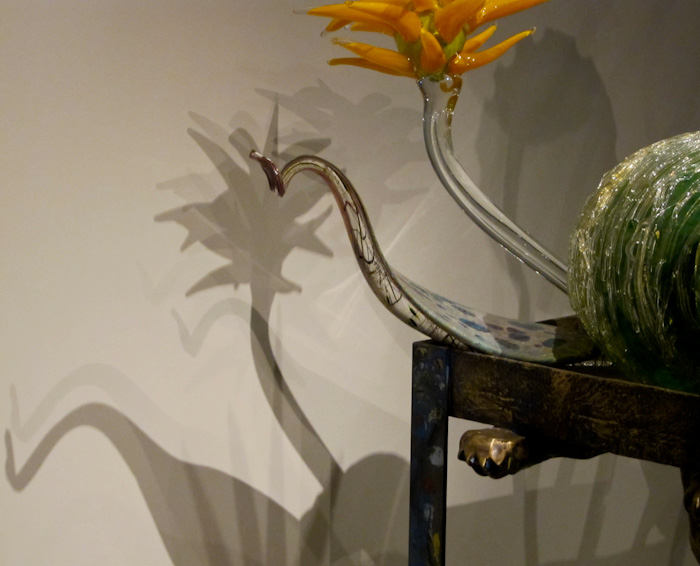
Senior year in high-school, some of the kids were talking about going to college, but that scene wasn’t like in the old days. Not many people did college at all anymore.
Sure, there was still a winged-ants-mating-flight aspect to higher education. It was a way to find lovers, friends, and future business contacts. But by now we all had squidskin wrist patches—and we made a lot of our social connections via the web. When we wanted to go out, the web guided us to flash parties with friends or with friends of friends.
As for learning things, sure colleges had some intense courses. But the courses were online as well—if you had the patience to channel them, not that many of us did. Mostly you could get by with grabbing piecemeal info off the web. And whatever you forgot, you could look up again.
I ended my family’s worries about the expense of upper-crust schools and told Mom and Dad I wasn’t going there. They were relieved—for about ten minutes. Then they they switched to worrying about me finding a career.
Mom suggested that I might help her with the wedding catering. I was, after all, good with the sometimes capricious nurbs. And I had the gift of empathy. People always liked me. But no, working my friends’ weddings wasn’t a row I wanted to hoe.
“Be an artist with me,” said Dad. “We can do the traditional thing. Plant the Elder and Plant the Younger. Louisville’s high-society art dynasty. You draw so beautifully, Mort. You have a vibrant, living line.”
“Thanks, Dad. But what did you see me draw lately?”
He was a little embarrassed. “Well, you know. Every once in awhile I cruise the social webs. I did a search for you, and I saw some sketches. Like that one of your friend Carlos fooling around with a squidskin on his back? And the one of that girl you’ve been seeing—Reba Ranchtree? Drawn from life? Powerful work.”
“Reba liked her picture too,” I allowed. “It upped her sexability rank.”
“What if, just to start with, you take some of my horse and dog commissions?” suggested Dad. Catching the look on my face, he added, “And paint some of the estates as well. They’re fun. But it’ll but awhile until you can handle the portraits.” He smiled softly. “These wealthy women—they’re very sensitive, very particular in their needs.”
“I bet,” I said. There was an unspoken suspicion around our house that my father was seducing his tastier clients. But Mom wasn’t pressing the issue. I had the feeling she was up to something herself.
These weren’t topics I liked to dwell upon. Indeed, I had a phobia that I’d eventually surf into a video of Mom or Dad in action, eyes bright and features engorged. Ugh. Not that, by now, anyone was particularly shocked by scabrous revelations on the web—what with all the pinhead cameras around. Everyone cursed, everyone drank, everyone shit, everyone fucked, and most of it was online 24/7. Privacy was gone, and we’d gotten over it. You couldn’t bust people for the little human foibles anymore.
Anyway, I took up Dad up on his offer and began working in his studio after school—and when school ended, I stayed on for another three years. Sure I was eager to leave home and to be an artist on my own. But for now, I could still learn from the old duffer. And he was getting me gigs. And he had a primo stash of art supplies.
Mostly Dad and I got along pretty well. But we reached a parting of the ways when I got hold of some nurb paint.
This product was designed to put patterns onto old-fashioned plaster walls, or onto the bodies of the electric cars that people were still using. Rather than being a high-priced squidskin, the nurb paint came in buckets like house paint. It was alive, and it was based on three cultures of slime mold, each mold with its own inherent color—red, yellow, blue. The living paint understood a vocabulary of a few hundred words—what you might call a programming language.
Once you’d slathered the stuff onto a wall it could form stripes, polka-dots, nested scrolls, branching filigrees or, if you were into sampling, a copy of some particular image. Given that the nurb paint layer was several millimeters thick, you also had the option of coaxing it to wrinkle up and form embossed patterns. You could talk to it, and you could push it around with a brush.
Quickly I mastered the nurb paint interface. I sensed this new medium could be richly expressive. In a few days I was painting vibrant little landscape studies—bedecked with thorns, elephant trunks, and puckers like the faces of little gnomes. And by the end of March, I had a large finished piece that I really liked.
Dad was dubious, and when I told him he should switch to the new stuff too, he exploded. “I want your creepy-crawly crap out of my studio,” he yelled, his long hair flying from side to side. “It’s evil! Use the good things I taught you, Morton. Go back to the oil paint.”
“That’ll be a cold day in hell,” I said. In silence I began packing up the easel, brushes and canvases that I’d bummed off Dad—also my cans of nurb paint.
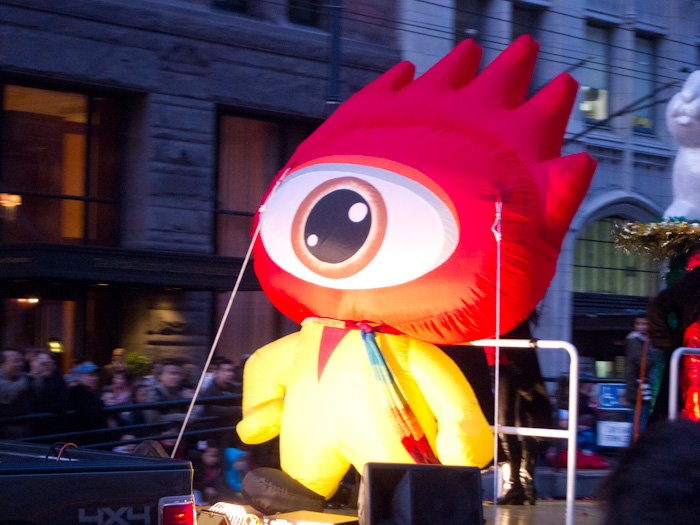
Just then one of Dad’s clients happened to meander in—Todd Trask, a social butterfly who owned a Derby-winning thoroughbred. He lived as a bachelor in an old, exquisitely outfitted mansion on his horse farm overlooking the Ohio River. He had an amusingly campy accent—the man was a fop, a dandy, a nob. I greatly enjoyed it whenever my family and I were invited to his extravagant dos.
“I’ve got my portrait of your friend Jason all set,” Dad told Todd.
“Yes, yeees,” said Todd, ignoring Dad and focusing on me. “The hale apprentice in the master’s workshop. Greetings, Morton. This exultant blare of shape and color is from your brush? Hmmm. I’m thinking it involves the new nurb paint I’ve been hearing about? Most excellent.” Todd leaned in close to my large canvas. He smelled of lavender and country ham. “One might fear a cheap, generic effect, but you’ve made it elegant. Polyrhythms, chaoticity, gnarl. Very of-the-moment. I see a nightmare horse, a crowd in motion, and—how sardonic—fat snails on the track. Une belle bizarrie. What do you call your—your monsterpiece, Morton?”
“Cold Day in Hell,” I said, giving Dad a cocky grin. “That’s the title I’m using for this series. Each painting has a subtitle too.” Gauging Trask’s interests, I came up with a good one. “Cold Day in Hell: Derby Day Winner’s Circle.”
“I shall have it!” cried our mark. “Name your price.”
Dad got in on the conversation then. He knew much more about the business side of art than I did. If I was actually going to sell my outrageous new work, Dad wanted to be on my side. And, as he’d later put it, so what if he didn’t like the taint of my paint. He’d been wrong about art fads before. Come what may, we Plants were a team.
Todd, Dad and I tossed around some numbers, and then I hit on a different kind of deal. “I’m just about ready to move out on my own,” I told Todd. “I’m getting serious about my work, and I’ll need my own studio. Would—would you have something like a spare tenant’s house that I could use rent-free for a couple of years? And a car?”
“How about a grown home and a roadspider!” exclaimed Todd. “Yes, yes! An outsider nurb artist. Adding buzz to the Trask name. Hail the patron! How Florentine. Can you promise me first bid on your next few works?”
“He’ll be selling through Idi Did’s gallery,” put in Dad, smooth as silk. “And she’ll set the prices. Certainly Idi can give a right of first refusal, Todd. But what’s a roadspider?”
“An ebony tarantula of the night,” said Todd, waggling his fingers. “An eight-legged steed.” He gave me a conspiratorial look. “We edgy aesthetes must help along the fuddy-duds, eh, Morton? I shall hang Cold Day in Hell above the mantel for an epic debauch. My Derby party! I hope there’s no danger of that nurb paint crawling off the canvas? Sinister slugs slither in shadow, they slime into the sleepers’ slits!” He struck a pose, as if seeing a vision.
“The paint-can claims the stuff is safe,” I said, laughing. “You can denurbalize it with ordinary paint thinner—dissolves it. Or use whiskey. I’ll guarantee my work for a year, in any case. Tell me more about that roadspider. Where will you get it? I didn’t know they were on the market yet.”
“My cousin Lance,” drawled Todd. “He’s an administrative cog at the Ford plant near the airport. FoMoCo is phasing out wheeled vehicles to grow roadspiders for United Mutations. They’ve been testing various models on our country lanes, lending them out to local artists.”
“Artists!” I exclaimed. “Why?”
“Seems there’s a loophole in the Kentucky biotech laws that says a company can deploy an utterly untested nurb—provided the nurb is being developed as a work of art. The United Mutations bizboys prevailed upon our venal state legislators to grant the muse an exemption. So Kentucky’s a frontier for nurb innovation just now, Morton. You’re positioned to become a stellar nurb artiste.”
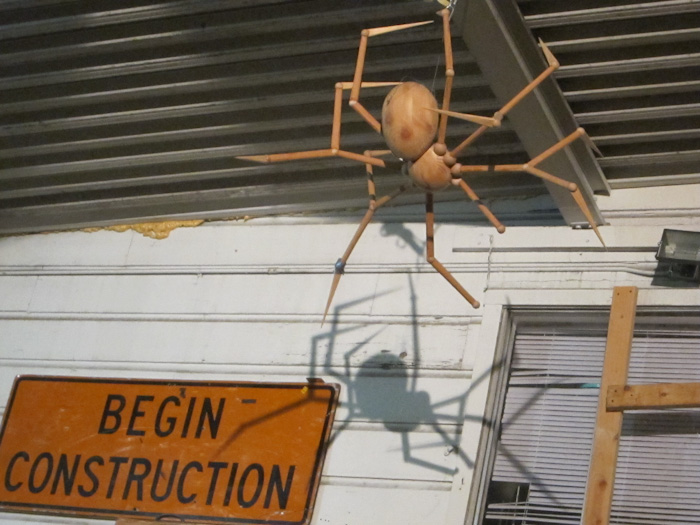
I moved onto a quarter-acre of Todd’s pastureland, atop a little hill near his house. And Todd got me a grown home and a roadspider from United Mutations—via his cousin at the local FoMoCo plant.
I thought of my grown home as a she because she talked to me in a womanly voice. And she was, after all, something womby that I lived inside. I called her Bel. She wasn’t overly intelligent or anything—we only talked about simple, practical things.
This was in the very early days of grown homes, and Bel was a little funky, even if she did have three rooms. Her walls were damp, and the air smelled—green. Like a jungle. Nice, in a way, but maybe not all the time. Her membranous windows weren’t fully transparent, but they let in plenty of light. And, when I wanted it, my grown home’s flesh could glow. Some kind of firefly gene in there.
Bel didn’t depend on nurb chow, instead she spread a big fan of roots underground to pull in all the nutrients she needed. As a deluxe touch, one of her inner walls acted as a squidskin, cruising the web in response to my spoken words.
My roadspider also seemed female—but in a more menacing sense, maybe like a warrior goddess. Her name was Zix. Zix was gorgeous—sculpted and gleaming like a black, chromed racing motorcycle. She had a comfortable seat grown into her back, and her eight legs arched high, strongly fortified by carbon fibers.
Perched amid Zix’s living machinery, I had a smooth ride, if bouncy. Zix could really cover the ground—not as fast as a car, but I’m talking upwards of forty miles per hour, even without a road.
The FoMoCo guy who delivered Zix warned me that if she got too hungry, she might stalk off to forage on her own—and that wouldn’t be a good thing at all. I was supposed to set out a huge helping of nurb chow every morning. I had some large, locked casks of the stuff.
Zix had a certain low-grade intelligence. Her voice was sweet, with a trace of a lisp. She imprinted on me as her owner, and she called me “Master.” A creepy thing about Zix was that the wetware engineers hadn’t yet straightened out the horrific look of her churning arachnid mandibles. At least her mouth was on her underside.
It was wavy riding Zix to school. Everyone would crowd around to look at her and to ask us questions. Zix would recite a sales pitch for the upcoming line of UM/FoMoCo Roadspiders. When we got home she’d go to her trough of nurb chow, and then she’d settle down inside a messy funnel-web that she’d spun amid the branches of the maple tree beside my poddy home.
Wanting to justify the goodies that Todd Trask had given me, I got fairly serious about my art. I did three more nurb paintings during the month of April. I liked being an artist.
My girlfriend Reba Ranchtree came over to spend the night as often as she could. And my old pal Carlos Solera was dropping by as well. My friends dug the vibe of my studio, with my uncanny nurb paintings on display. Sometimes we’d get high off an online brainwave channel—we had these buzzy little eel-pad nurbs we’d put on our necks to trickle in the stim. No real data, just itchy rhythms. Like music, in a way.
Sometimes when we were riding a channel, I’d be gone enough let my friends poke into my paintings. No point being tight, I’d say. Open it up. Yeah, we were in Louisville, but I imagined we were as loofy as the NYC qrudes.
To make my last spring of high-school the sweeter, Carlos often brought Jane Roller along. What with most of the older boys embedded in relationships or even married, Jane had returned to fraternizing with her peers. I loved hearing her lively, malleable voice bounce off my grown home’s resonant walls. To me, Jane’s voice echoed all the way back to my earliest childhood.
Around this time I admitted to myself that Jane had been the one for me all along. I was much more interested in her than I was in Reba. I mentioned this to Carlos, and he wasn’t against a switcheroo. But we weren’t sure how to swing it. It was like I was too deeply in love with Jane to go ahead and tell her. It was that inarticulate raw youth thing.
Our big turning point came during Todd Trask’s Derby party, one night early in May. Around dusk that day, I’d given Carlos a ride to my place on the back of my roadspider. Zix didn’t really like the extra load, but her stronger-than-metal legs could handle it. When we got to my grown home, Zix was of course very hungry. I thought I’d filled her food basket that morning, so without really looking, I went right inside with Carlos.
We wanted to amp up for the Trask do. I was a little nervous about the event—which would involve, I expected, Todd braying at length about my Cold Day in Hell painting in his “great hall.”
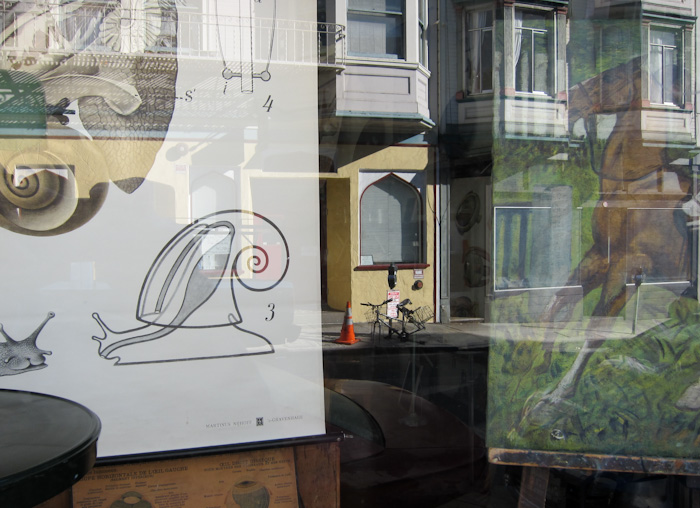
Jane and Reba showed up at my place in Jane’s electric car, looking like pastel flowers in their nurb-dresses. As the sun went down, we four keyed in on a luxor new brainwave channel that Reba had found. It was crypto, off the grid, on the border of epilepsy. Carlos, Jane, Reba and I flubbed around on my soft floor for an hour or three, not really noticing anything in the outer world.
“Are you sure you fed the spider?” said Jane all of a sudden. Her voice was clear and sweet, like a tendril from another world.
I sat up in the gloom, pulling off my eel pads, gathering my wits. Down the hill, Todd’s party was going full blast. Time to regroup.
In the light of the walls’ faint green glow, I saw that we four had gotten naked. Carlos was on top of Reba, softly rocking.
“Yukker,” said Jane, not overly upset. “Hope my dress can smooth out.” The sleek, silky cloth crawled onto her lap.
“Now you’ve got me worried about Zix,” I said. “Did you hear something? Is that why you asked?”
“A floppy, dragging sound,” said Jane. “A dying neigh. Up high?” Jane’s skin was beautiful, milky, her breasts of a perfect, cuppable size. But now her dress crawled over them. Jane stared into my eyes, her face framed by the lovely yellow of her hair. I was speechless.
“Bad to channel brain waves,” said Jane. “Not doing that again, unh-unh. You miss everything.”
“I’m ready to go,” I said, pulling on my pants. “Did you and I—”
“Don’t think so,” said Jane. “But it’s high time. We’ve been circling each other for so long. And you’ve gotten exciting. An artist! Before this, you were just, you know, too luxor for the lecture and, like, leave me alone. But now you’re on a star-quest.”
Saying this, she made a lo-and-behold gesture towards my latest work, Cold Day in Hell: Two Flights Up. For this one, I’d painstakingly painted three pictures on top of each other, sampling some Bosch and Bruegel along the way. I’d taught my three batches of slime-mold to slowly trade places. The result was a multiplex triptych, with the three nurb-paintings cycling through: Hell, Eden and Heaven. My waviest work yet.
“The Eve in Eden is you, Jane,” I said.
“I thought so,” she answered. “So sweet. And you’re Adam.” We kissed for first time since those seven minutes in the closet all those years ago.
“Did you say dying neigh?” I said after a bit, mentally scrolling through our conversation. “Why did you say that?”
“What I heard maybe,” said Jane. “Up in Zix’s tree?”
“Shit.”
We went outside with a light and sure enough, Zix’s funnel-nest was torn and trembling. Blood dripping down. The big spider had dragged a colt in there. Zix was feeding on the week-old horse, and he wasn’t quite dead even now. The colt’s thin legs did a staccato flutter, as if in frightened protest. But his motions damped down as Zix bit his body again and again.
“She’s venomous?” said Jane.
“Nobody told me,” I said weakly.
Music was sweeping up from the Trask mansion, and people were silhouetted on the big, open porches, their voices rising in self-satisfied honks and quacks. I heard someone yelling my name. Todd. The patron summoning his pet artist.
I found a long stick on the ground and poked at Zix, wanting to drive her out of her funnel and away from the colt. I had some half-baked notion of burying the horse’s body or at least dragging it off into some underbrush. Maybe Todd would think a fox had killed the colt. He was a very special horse, bred in the old-fashioned way from the Derby winner that Todd owned, and potentially worth a million dollars.
“Leave me, Master,” said Zix, in her sweet, raspy voice. “I am feeding.”
“Get off that horse, damn you. I’ve got plenty of nurb chow. Just wait and I’ll fill the trough. I’m sorry I forgot”
“I like the…horse,” said Zix.
Recklessly I poked her again with my branch. With a sudden whirling spasm of motion, the spider popped out the other side of her funnel nest, holding the pathetic dying colt tight with her mandibles, dragging him by the neck. As if frightened of me, Zix scrabbled down the hill towards Trask’s house, her legs arching high, and the colt leaving a trail of blood that glittered dark in the party lights.
Uncertainly Jane and I tagged along—and now Todd Trask began yelling. No more hothouse accent.
“The best goddamn colt I ever owned!” he bellowed. “Killed by that fucking giant spider!” Spotting me, he grew apoplectic. “I want you off my farm, you son of a bitch. I never want to see you again.”
Todd was drunk. By the time he’d fetched his shotgun from the gun rack in his front hall, Jane and I were back up at my grown home.
“Get in my car,” Jane urged. “Never mind Carlos and Reba. They’re still goofing.”
I could hear the gun blasting again and again as Todd wiped out Zix. The music had fallen silent, the guests were mewling in dismay.
“Come back down here, Morton,” shouted Todd. No way.
“Why don’t we go someplace and fuck,” suggested Jane.
“I don’t like to leave my paintings behind,” I said, getting into her car. “Todd might do something to them.”
“Spoken like an artist,” giggled Jane as we drove off. “Todd won’t hurt the paintings. He’s being a drama-king and he knows it. This big scene makes your art worth even more.”
About the Author
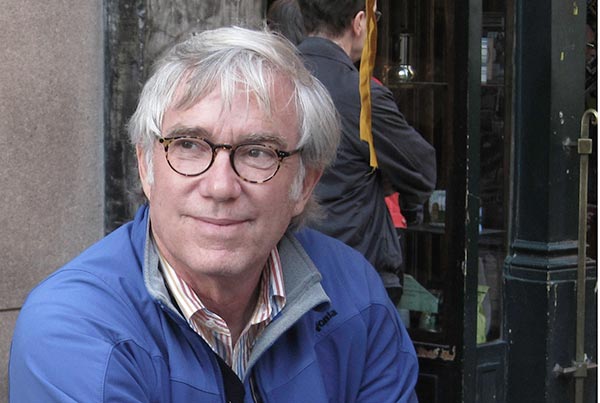
Photo by Sylvia Rucker
Rudy Rucker is a writer, a mathematician, and a former computer science professor. He received Philip K. Dick awards for his cyberpunk novels Software and Wetware, now available in the Ware Tetralogy. “Jane and the Roadspider” is drawn from Rudy's novel in progress, The Big Aha.
His fantasy California novel of the afterlife, Jim and the Flims, appeared in 2011, as did his autobiography, Nested Scrolls, which received the Emperor Norton Award. Rudy has recently started his own book epublishing venture, Transreal Books, bringing out his Complete Stories. He took up painting in 2000, and he’s had three shows of his pop-surreal works San Francisco.
Post a comment on this story!